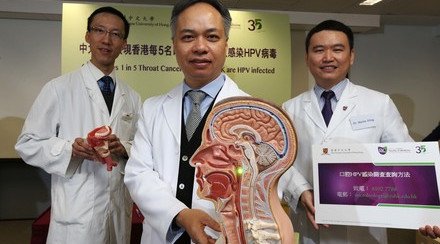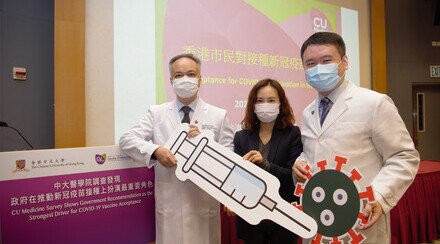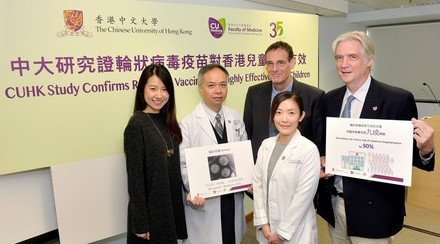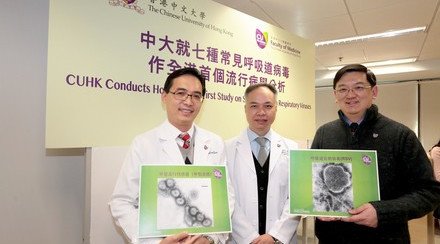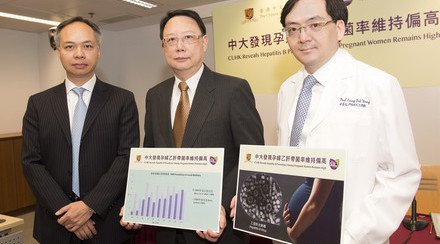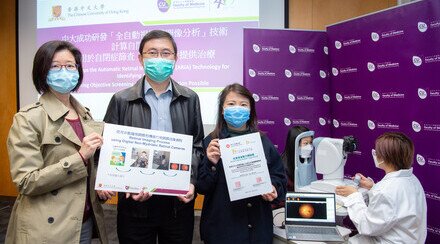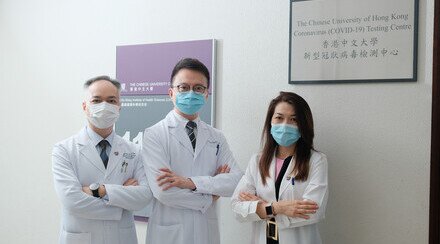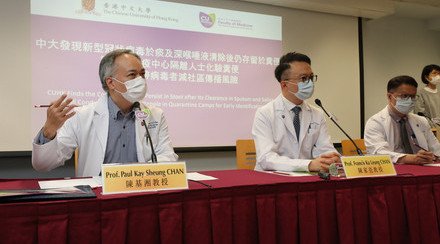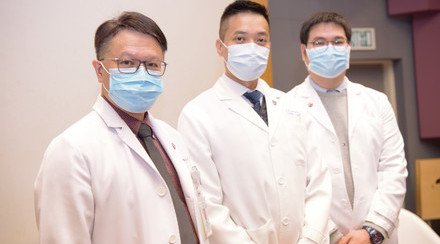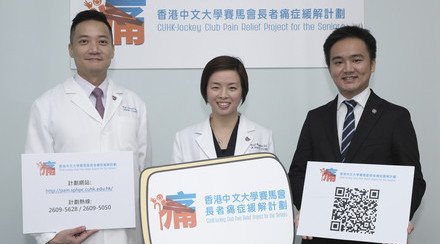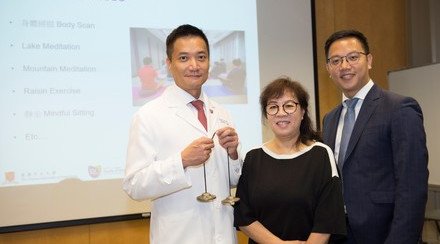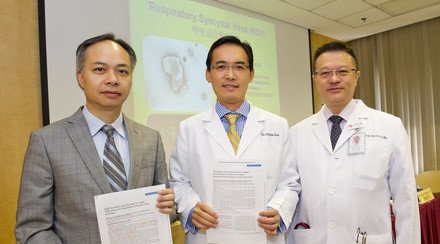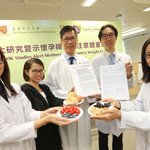CUHK Reveals the Key to a Successful HPV Vaccination Programme
The Hong Kong government has announced a policy to provide eligible female primary students with the human papillomavirus (HPV) vaccine to prevent cervical cancer. Researchers from the Faculty of Medicine at The Chinese University of Hong Kong (CUHK) have conducted a series of studies to investigate how to make the HPV vaccination programme a successful one in Hong Kong. In one of these studies, conducted in collaboration with the Karen Leung Foundation, the school-based vaccination model, accompanied by information aimed at parents and girls, achieved a high uptake rate of over 80%. Key facilitators and barriers to the implementation of HPV vaccination in Hong Kong were identified. Findings have been published in the international scientific journal PLOS ONE.
School-based HPV vaccination programme can achieve over 80% uptake in Hong Kong provided that facilitators and barriers are properly addressed
HPV vaccination is the ultimate prevention of cervical cancer because it protects against the root cause, i.e. HPV infection. On average, a female dies of cervical cancer every 2.4 days in Hong Kong, and there has been no trend towards a decrease in incidence or mortality over the last 10 years. Since 2009, the World Health Organization (WHO) has recommended HPV vaccination to be included in national immunisation programmes. It is understood that over 90 countries have introduced HPV vaccination in their national immunisation programmes.
In order to drive Hong Kong towards a successful prevention of cervical cancer, the HPV Research & Education Consortium at CUHK had piloted different vaccination models in schools since 2011 to understand the key facilitators and barriers relevant to local norms and culture. Altogether, more than 30 schools have participated, and more than 4,000 school girls have received vaccination. When the key issues are properly addressed, a school-based HPV vaccination programme can achieve an overall uptake rate of over 80% in Hong Kong.
Professor Paul Kay Sheung CHAN, Chairman of the Department of Microbiology of the Faculty of Medicine at CUHK remarked, “The current vaccine uptake remains low in Hong Kong with only about 7-10% of school-girls reported vaccinated. We cannot entirely rely on cervical screening to control cervical cancer. Although screening can pick up lesions at the precancerous stage, it is not a truely preventive method like vaccination. We are excited by the government’s decision to include HPV vaccination under the Childhood Immunisation Programme and to implement it through a school-based approach starting from the 2019-20 school year. However, we should be cautious. A number of countries have experienced failure in implementing national HPV vaccination programmes. The vaccine uptake could be less than 20% even when it is given free-of-charge. We hope the key issues identified by our studies can help Hong Kong launch a successful vaccination programme to protect our next generation from cervical cancer.”
Professor Albert LEE, Director of the Centre for Health Education and Health Promotion of The Jockey Club School of Public Health and Primary Care of the Faculty of Medicine at CUHK elaborated on the findings. “Our studies showed that a few key issues can impact the success of HPV vaccination in school girls. Firstly, whether parents have to pay or not is one of their important concerns but not the most important one. They must be convinced that the vaccine is effective and safe before allowing daughters to be vaccinated. Secondly, parents/ family members’ agreement is even more important than a doctor’s recommendation in driving girls to receive vaccination. Information should therefore be aimed at parents as well. Thirdly, more than 10% of parents refused vaccination for their daughters because of fear of early sex, therefore the programme should be accompanied with proper sex education. Lastly, school is an important setting not only for health information but also the improvement of health literacy for both students and parents to facilitate the uptake of preventive health services such as HPV vaccination.”
Ms. Katharina REIMER, Executive Director of the Karen Leung Foundation remarked, “We collaborated with CUHK in the hope to aid cervical cancer prevention and education in Hong Kong, which is the mission of our Foundation. We were very encouraged by the enthusiasm of the school teachers. Furthermore, the parents and girls were willing to share their views on accepting or rejecting the vaccination. We regard this collaboration as one of our most successful contributions to cervical cancer prevention in Hong Kong and look forward to working with CUHK to drive much needed dialogue and awareness to protect Hong Kong’s female population from this deadly cancer.”
Professor CHAN remarked, “Based on the findings of our studies and experience from other countries, we recommend four directions in implementing an HPV vaccination programme in Hong Kong:
• Completely free of charge rather than partially subsidised.
• Primary (Primary 5 and 6) school-based, plus a catch-up programme for secondary school girls (Form 5 and 6) in the initial few years.
• Provide information targeted on parents and girls and correct their misconceptions.
• Establish a monitoring system to maintain confidence in vaccination.”

A collaborative study by the Faculty of Medicine at CUHK and the Karen Leung Foundation revealed that a school-based HPV vaccination model, accompanied by information aimed at parents and girls, can achieve a high uptake rate of over 80%. (From right: Professor Albert LEE, Director of the Centre for Health Education and Health Promotion at The Jockey Club School of Public Health and Primary Care and Professor Paul Kay Sheung CHAN, Chairman of the Department of Microbiology from the Faculty of Medicine at CUHK; Ms. Katharina REIMER, Executive Director and Ms. Sunny YANG, Healthcare Program Manager from the Karen Leung Foundation)

Professor Paul CHAN (right) foresees a 10-fold increase in uptake rate after a systematic school-based HPV vaccination programme is implemented in Hong Kong.

Professor Albert LEE (left) explains parent’s insufficient knowledge in HPV and cervical cancer is the main cause of low vaccine uptake in Hong Kong. Thus, he recommends strengthening health education in this aspect.
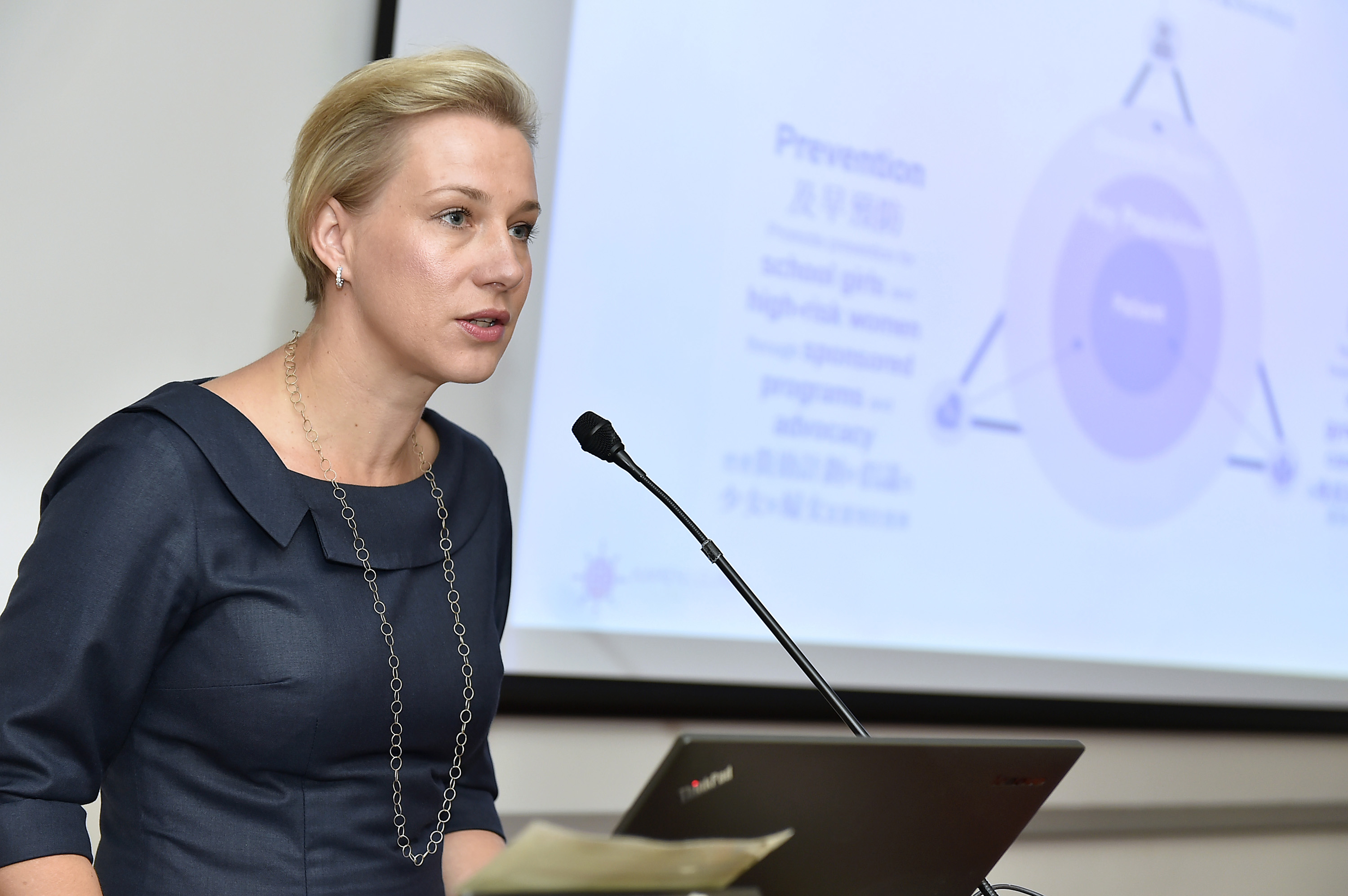
Ms. Katherina REIMER shares the experience in promoting HPV prevention and related health education in schools.


